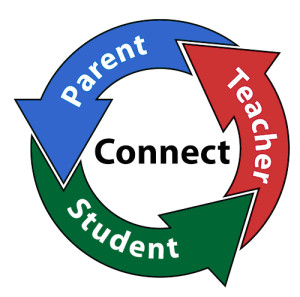Only a few minutes before your teacher puts a test in front of you. Are you fidgety and tense, or do you feel sick to your stomach? If that describes you before you take a test, you may have text anxiety. Even the best students have it. But if you want to do well on a test, your test anxiety must be controlled. Practicing some of the following tips can help:
 Get enough sleep.
Get enough sleep.- Eat a good meal before the test. Not so much that you feel groggy but enough to give your brain the calories its needs to function well. Remember, your brain is an organ that needs to be nourished like all the other organs in your body. Coffee and donuts aren’t very nutritious even though they’re quick and easy.
- Exercise to reduce tension and encourage thinking. It stimulates your mind and body and improves your ability to concentrate.
- Allow enough time to get to class without hurrying. Rushing causes tension and stress because the fear of being late builds anxiety. “Hurry up and wait.”
- Give yourself time in the classroom to relax and compose yourself. Breathe deeply. Imagine a relaxing scene and allow your muscles to relax. Then think about the test while you’re in this relaxed state.
- Have a positive attitude. Tell yourself you studied as well as you could have for the test and believe it. Convince yourself that others have done well on this test and you can, too.
- Make sure you can see a clock to plan your time and pace yourself. Not knowing how much time has elapsed creates anxiety. Budget your time so you can answer all of the questions.
- Begin by filling in the answers you know. This makes you confident and relieves anxiety because you see that you do know the answers. It may also trigger recall of other answers that you had forgotten.
- Don’t panic if others are busy writing and you’re not. By spending time thinking, you may create better quality than someone who’s writing frantically.
- Don’t panic if you forget an answer. Move on to other questions – the answer may occur to you as you continue taking the test. Be careful of the numbering on your answer sheet if you skip a question!
- Don’t worry if others finish before you do. Finishing first doesn’t guarantee the best grade. Usually the better papers are handed in by students who spend time thinking about and checking their answers before turning in their papers.

 A dear neighbor friend and I were talking one night. “I want to call my son’s teacher. His grades are bad in her class and he insists that he does all the work. We think he needs a different teacher because my boy tells me he doesn’t like Mrs. X and she picks on him. What do I do?”
A dear neighbor friend and I were talking one night. “I want to call my son’s teacher. His grades are bad in her class and he insists that he does all the work. We think he needs a different teacher because my boy tells me he doesn’t like Mrs. X and she picks on him. What do I do?”